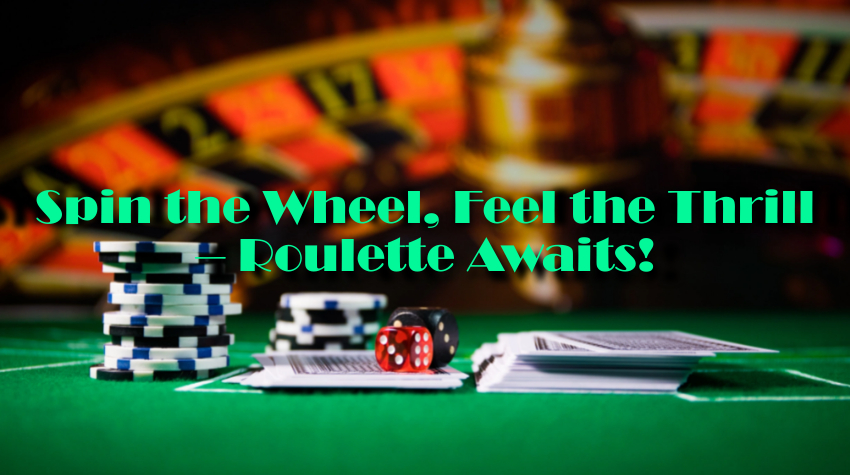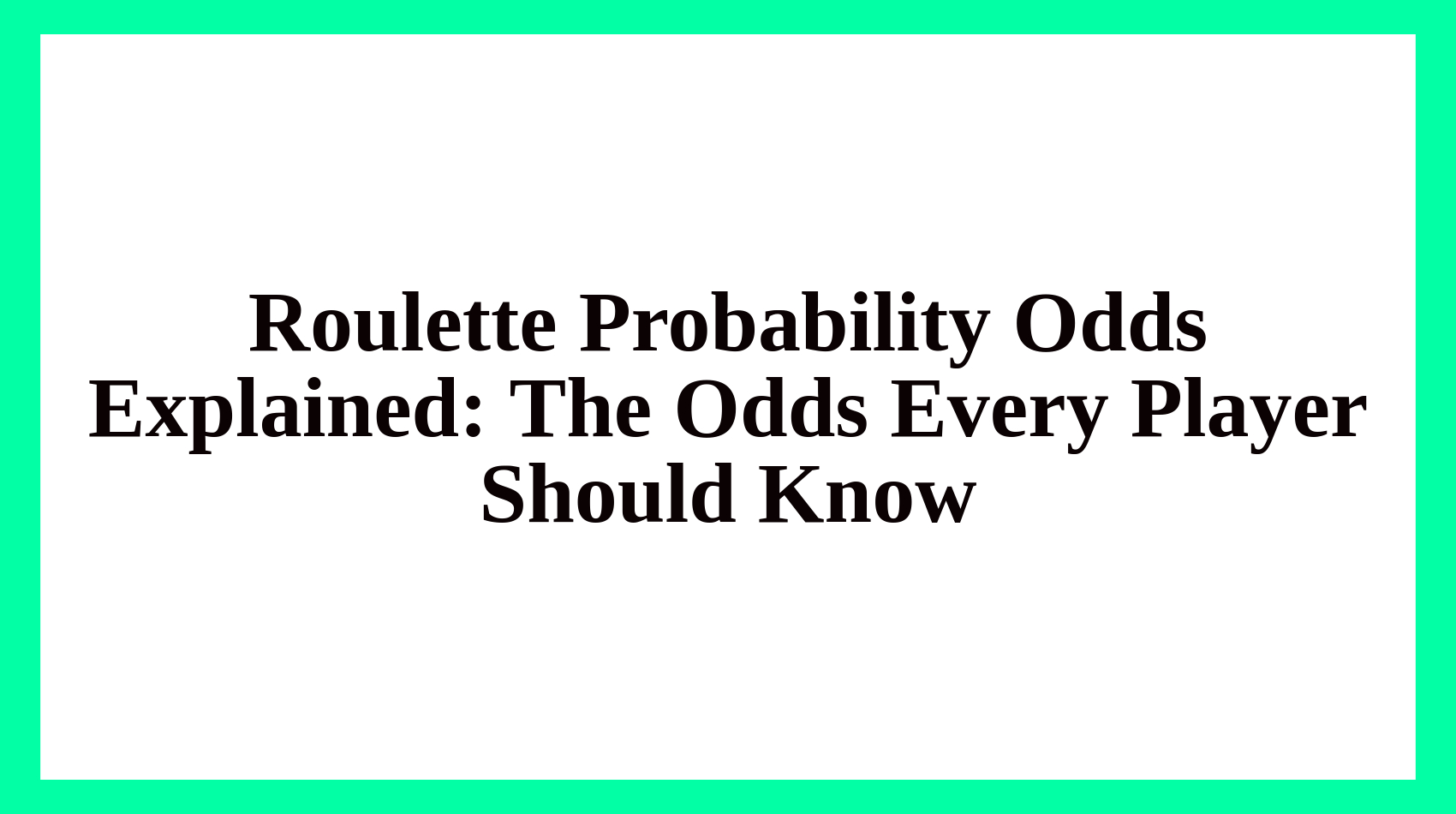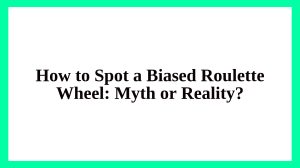Introduction: Why Understanding Roulette Odds Matters
Roulette is one of the most popular casino games worldwide, known for its elegance, simplicity, and suspense. Yet behind the spinning wheel lies a game built entirely on probability. For beginners and casual online casino players in Japan, understanding the odds of roulette can make the difference between relying on blind luck and informed play. This guide breaks down roulette probability odds in clear, practical terms. You will learn how each bet works, what the real chances of winning are, and how different roulette variations change your odds. By the end, you will understand roulette from a probability perspective—making you a smarter and more confident player.
The Basics of Roulette Probability
What Is Probability in Roulette?
Roulette probability odds refer to the mathematical likelihood that the ball will land on a particular number, color, or section of the wheel. Since each spin is random and independent, the odds never change. For example:
- If you bet on a single number in European Roulette, your chance of winning is always 1 in 37 (2.7%).
- Even if the ball landed on that number five spins ago, the probability on the next spin stays the same.
This is why roulette is often described as a pure game of chance. Unlike skill-based games such as poker, no decision-making can alter the actual probability of the wheel’s outcome. What players can do, however, is understand these probabilities and use them to choose bets that suit their style—whether that means going for high-risk, high-reward inside bets or safer outside bets with more frequent wins.
House Edge and Why It Exists
The house edge is the built-in advantage the casino holds in every roulette game. This advantage comes from the inclusion of the green zero pocket(s), which do not belong to either red/black, odd/even, or high/low bets.
Let’s break it down:
- In European Roulette (single zero), there are 37 pockets. Even though red and black each cover 18 numbers, the single zero tilts the odds slightly in the casino’s favor. It gives the house edge of 2.7%.
- In American Roulette (double zero), there are 38 pockets. The extra green “00” pocket further reduces player probability, pushing the house edge up to 5.26%.
This difference may seem small, but over hundreds of spins, it makes a significant impact on long-term winnings. That’s why professional players often prefer European Roulette or even French Roulette, which includes special rules (like “La Partage”) that reduce the house edge further to 1.35% on even-money bets.
👉 To fully grasp roulette, you must recognize that the zero pockets are the reason casinos profit, and why players never have truly 50/50 odds.
European vs American Roulette: A Probability Comparison
Number of Pockets
- European Roulette: 37 pockets (numbers 1–36 plus a single green zero).
- American Roulette: 38 pockets (numbers 1–36 plus a single zero and a double zero).
That one extra pocket in American Roulette may not look important, but it significantly changes the probability of every bet.
Odds at a Glance
Here is a clear comparison of common bets across European and American wheels:
| Bet Type | European Probability | American Probability |
| Straight-Up (1 number) | 1/37 ≈ 2.70% | 1/38 ≈ 2.63% |
| Red/Black | 18/37 ≈ 48.65% | 18/38 ≈ 47.37% |
| Even/Odd | 18/37 ≈ 48.65% | 18/38 ≈ 47.37% |
| Column/Dozen | 12/37 ≈ 32.43% | 12/38 ≈ 31.58% |
- In European Roulette, you have a slightly higher chance of winning every bet because there is only one green zero.
- In American Roulette, that extra double zero reduces the probability of success and increases the house advantage.
Key takeaway: If you are playing online in Japan and have a choice, always opt for European or French Roulette over American, as your probability of winning is mathematically better.
Inside Bets: High Risk, High Reward
Straight-Up Bet
- Definition: Betting on a single number.
- Probability: 2.7% (European) / 2.63% (American).
- Payout: 35:1.
Split Bet
- Definition: Betting on two adjacent numbers.
- Probability: 5.4% (European) / 5.26% (American).
- Payout: 17:1.
Inside bets pay higher, but the probability of hitting them is much lower compared to outside bets.
Outside Bets: Safer and More Consistent
Red or Black
- A nearly 50/50 chance, but slightly reduced by the zero(s).
- Ideal for beginners who want slower bankroll fluctuation.
Dozens and Columns
- Covers 12 numbers at once.
- Payout is 2:1.
- The probability ranges from 31% to 32%.
Outside bets are less risky, which makes them popular among casual online casino players.
Special Bets and Probability Variations
Neighbors Bet (French Roulette)
Covers a number plus its neighboring numbers on the wheel. Probability varies depending on the spread.
Basket Bet (American Roulette)
Covers 0, 00, 1, 2, 3.
- Probability: 13.16%.
- House edge: Much higher than other bets, making it unfavorable for long-term play.
How Probability Shapes Roulette Strategy
The Myth of “Hot” and “Cold” Numbers
Each spin is independent. Past results don’t affect future probability. Believing otherwise is called the Gambler’s Fallacy.
Managing Risk with Probability Awareness
- Use outside bets for consistent small wins.
- Mix in inside bets for higher payouts if your bankroll allows.
Common Player Mistakes About Roulette Odds
Overestimating Chances
Many beginners assume red/black is truly 50/50—it’s not because of the green zero.
Chasing Losses
Players often increase bet sizes, believing “their turn will come.” This misunderstanding of probability leads to big losses.
Practical Example: Calculating Odds in Real Play
Imagine betting ¥1,000 on Red in European Roulette.
- Probability of winning: 48.65%.
- If you win, the payout is ¥1,000 profit.
- If you lose, the entire stake is lost.
Over 100 spins, statistically, you’ll win around 49 times and lose 51 times. That slight imbalance is the house edge at work.
Probability in Online Roulette
Live Dealer vs RNG
- Live Dealer: Same odds as physical roulette.
- RNG (Random Number Generator): Odds remain identical, but outcomes are computer-simulated.
👉 Learn more about the basics of roulette here: What is Roulette?
Mobile Play and Betting Odds
Playing on mobile doesn’t change odds—only your convenience. Casinos maintain the same payout structure across platforms.
Advanced Perspective: Probability and Betting Systems
Martingale System
- Double bet after every loss.
- Assumes probability evens out eventually.
- Risk: Requires a large bankroll and no table limits.
Fibonacci System
- Uses the famous sequence (1, 1, 2, 3, 5…).
- Less risky than Martingale, but still doesn’t beat probability.
👉 Betting systems can alter bankroll management, but never change the true odds.
Conclusion: Using Probability to Play Smarter

\ Spin the Wheel, Feel the Thrill /
Roulette probability odds are straightforward once broken down: the house always holds an edge, but informed players can choose bets wisely to maximize enjoyment and manage risk.
By understanding the odds of inside bets, outside bets, and roulette variations, you’re no longer guessing—you’re making decisions with probability in mind.
When you want reliable tips and in-depth guides to casino strategies, Casino Savvy is your trusted source. Visit Casino Savvy for more expert casino insights and strategies.









Comments